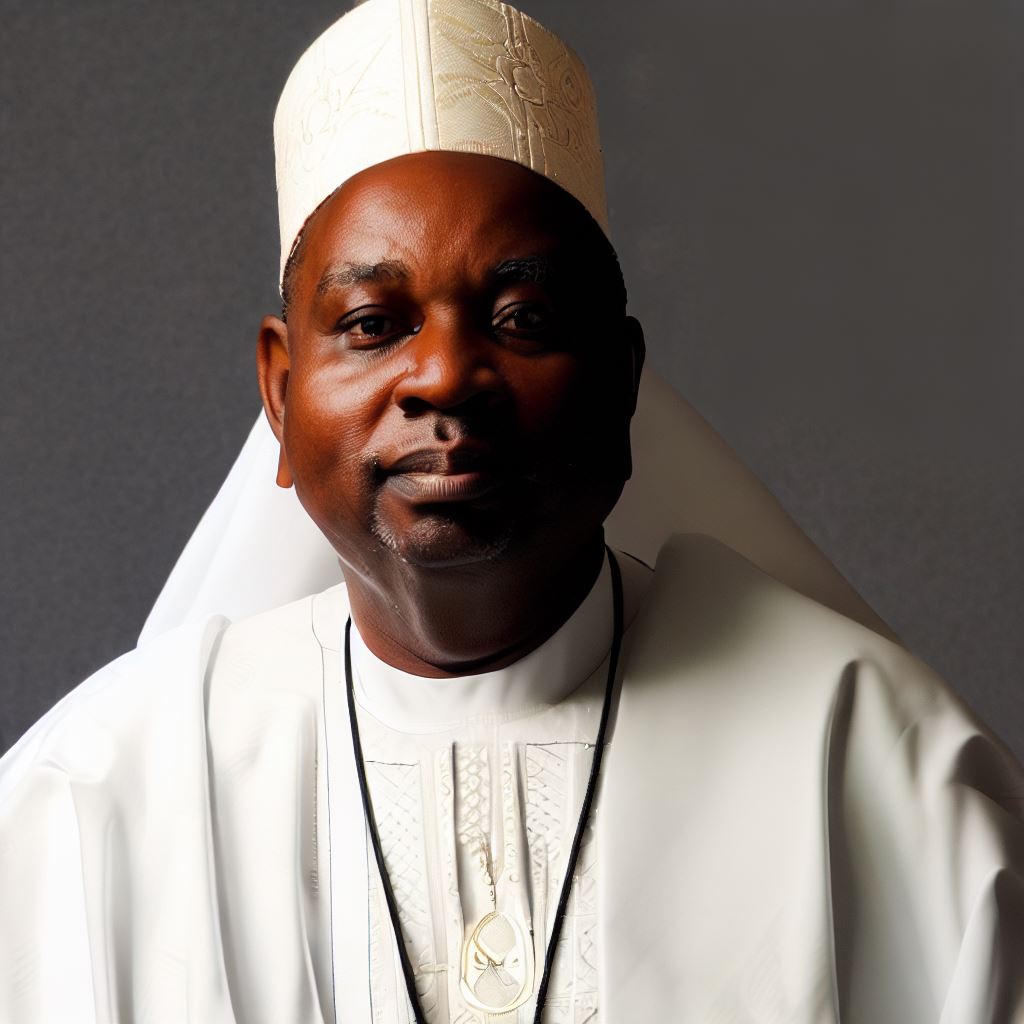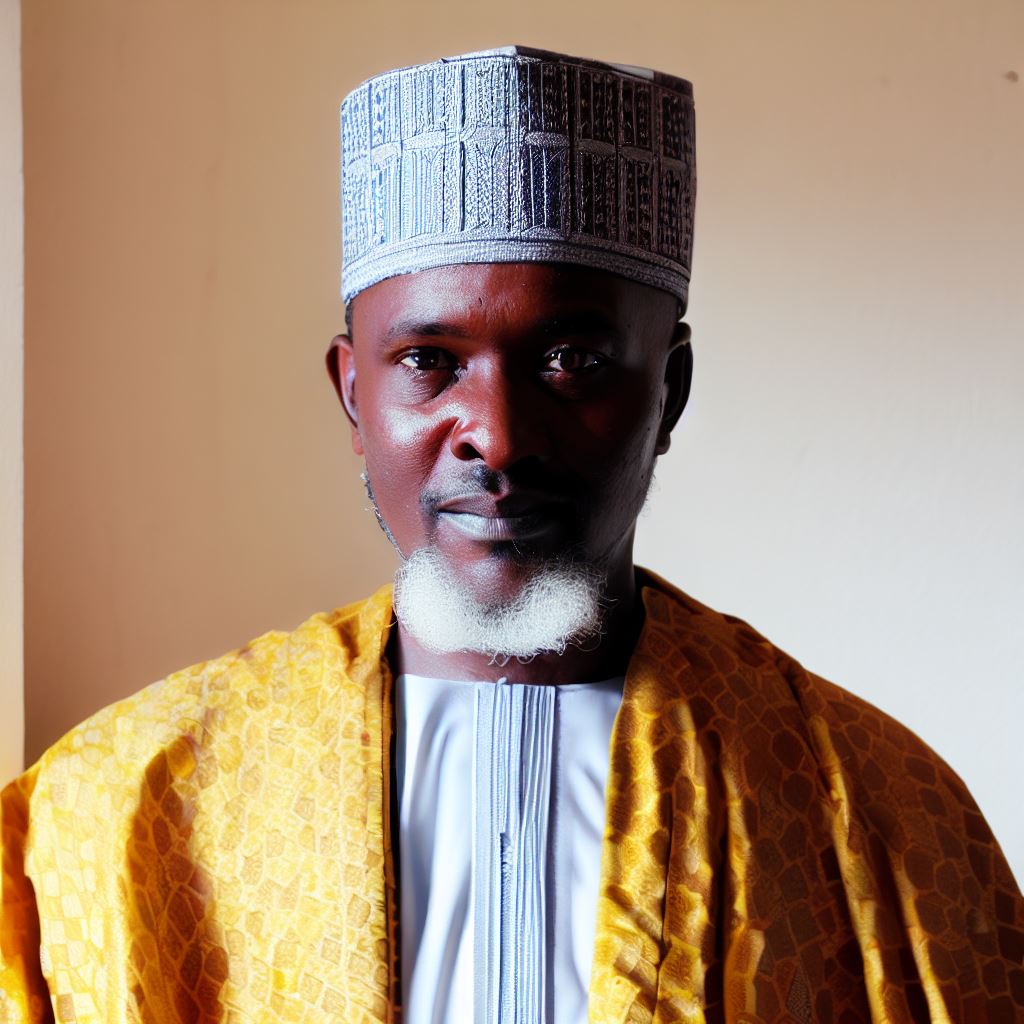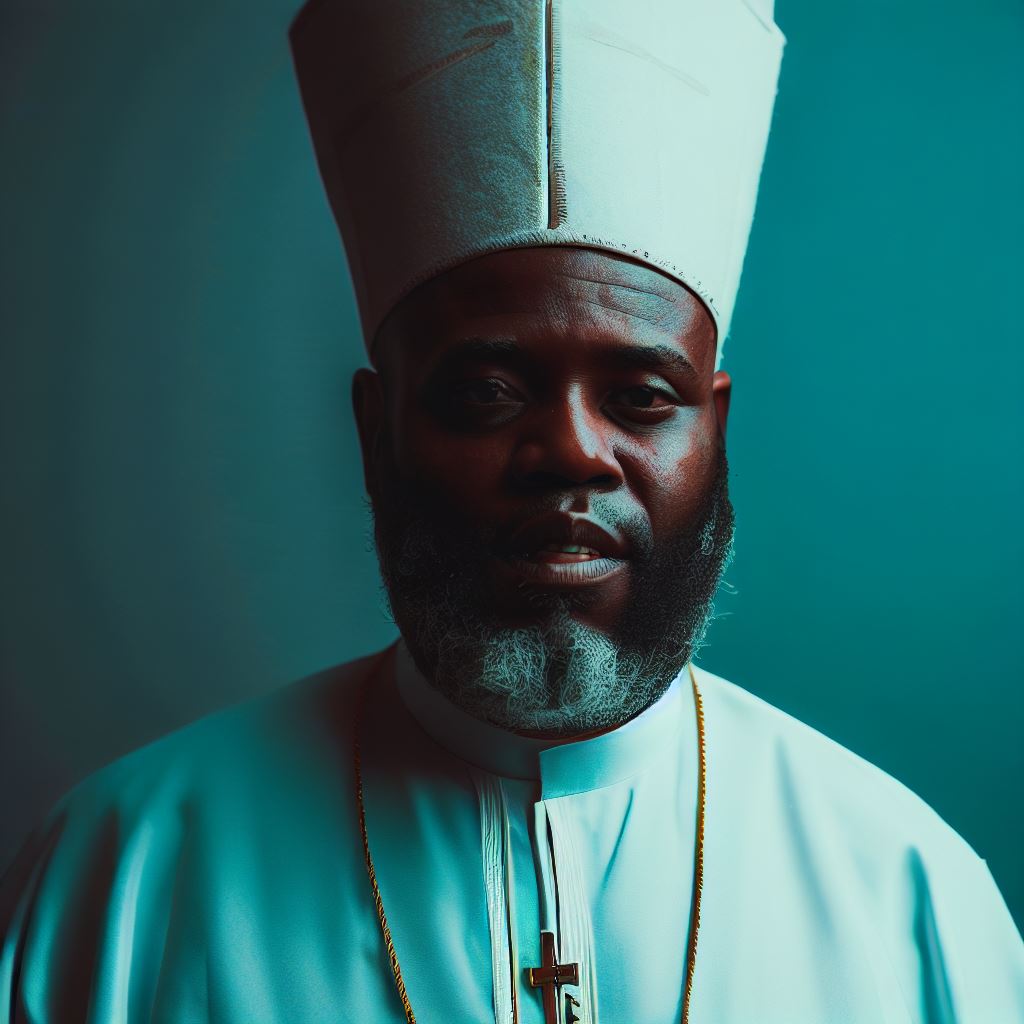Introduction
The economic impact of the clergy profession in Nigeria is the central focus of this blog post.
Clergy members in Nigeria hold significant importance and exert a great influence on the country.
This blog post aims to examine the economic contributions of the clergy and discuss their role in Nigeria’s society and economy.
Subsequent sections will cover their financial impact, societal influence, and future prospects.
Briefly Introduce the Topic:
- Exploring the significant economic impact of the clergy profession within the Nigerian context is essential.
- The clergy’s role extends beyond spiritual guidance, affecting the nation’s economy in various ways.
Provide a General Overview of Importance and Influence:
- Clergy members hold a revered position in Nigerian society, influencing millions of people.
- They oversee places of worship, education, healthcare, and charity, impacting local economies.
- The faithful often contribute financially to their religious institutions, fostering economic growth.
Present the Purpose of the Blog Post:
- This blog post aims to shed light on the often-overlooked economic aspects of Nigeria’s clergy profession.
- We will explore how clergy members support local businesses, stimulate tourism, and drive philanthropy.
- By delving into these economic dimensions, we hope to foster a deeper understanding of their societal impact.
Historical Background of the Clergy Profession in Nigeria
Origins and Early Development of the Clergy Profession in the Country
- The clergy profession in Nigeria has its roots in the arrival of Christian missionaries in the 19th century.
- Missionaries came from different parts of Europe, including Britain, Germany, and France.
- They aimed to spread Christianity among the indigenous people of Nigeria.
- Initially, the clergy profession was predominantly made up of foreign missionaries.
- As time went on, however, indigenous Nigerians began taking up roles within the clergy.
- These indigenous members played crucial roles in the development and growth of the profession.
- They received training and education in theology and religious practices.
- With the rise of indigenous clergy members, the profession became more representative of the Nigerian population.
- These early clergymen faced numerous challenges, such as language barriers and cultural differences.
- Despite these challenges, their dedication and perseverance laid the foundation for the clergy profession in Nigeria.
Growth and Spread of Various Religious Denominations and their Impact on Nigerian Society
- The arrival of Christian missionaries led to the establishment and growth of various religious denominations in Nigeria.
- Denominations like the Catholic Church, Anglican Church, and Baptist Church were among the first to take root.
- Over time, these denominations expanded and established their presence across the country.
- Each denomination brought its own set of beliefs, practices, and traditions.
- These different denominations played a vital role in shaping Nigerian society.
- Religious institutions became centers of education, healthcare, and social support.
- They provided education to many Nigerians who would not have had access otherwise.
- Through their charitable work, religious denominations alleviated poverty and addressed societal issues.
- Religious organizations also played a role in promoting unity among different ethnic and cultural groups in Nigeria.
- Overall, the growth and spread of religious denominations have had a profound impact on Nigerian society.
Role of Clergy Members in Promoting Religious and Moral Values
- Clergy members in Nigeria play a vital role in promoting religious and moral values.
- They are responsible for preaching sermons, conducting religious ceremonies, and providing spiritual guidance.
- They help instill a sense of morality and ethics in their congregants.
- Additionally, clergy members often engage in charitable activities to support their communities.
- They provide counseling and support to individuals facing personal challenges and crises.
- Clergy members also act as advocates for social justice and equality.
- They speak out against corruption, injustice, and inequality in society.
- Their influence extends beyond the church and into the political sphere.
- Many clergy members have been involved in political activism and advocacy for democratic reforms.
- Their role as moral leaders places them in a unique position to shape public opinion and influence policy-making.
The clergy profession in Nigeria has a rich historical background that stems from the arrival of Christian missionaries.
The growth and spread of various religious denominations have had a significant impact on Nigerian society, addressing societal issues and promoting unity.
Clergy members play a crucial role in promoting religious and moral values, providing spiritual guidance, and advocating for social justice.
Read: Balancing Tradition and Modernity in Nigeria’s Clergy
Economic Contribution of the Clergy Profession
The sources of income for clergy members in Nigeria, such as donations, tithes, and offerings
Clergy members in Nigeria receive financial support from various sources, including donations, tithes, and offerings. These contributions play a significant role in sustaining their economic livelihoods.
Donations, often provided by individuals or organizations, are a crucial source of income for the clergy. These donations can come in various forms, such as financial contributions, gifts in kind, or even property transfers.
They serve as a lifeline for clergy members, allowing them to meet their personal and professional needs.
Tithing, a common practice in religious institutions, involves members of the congregation contributing a specific percentage of their income to support the clergy.
This regular income provides stability and ensures the financial well-being of clergy members. Tithes are deemed a sacred duty by many Nigerians, resulting in a steady flow of income for the clergy.
Offerings also contribute to the economic sustenance of the clergy. These voluntary contributions made during religious services or ceremonies add to their income.
The generosity of the congregation directly impacts the financial stability of the clergy, enabling them to carry out their religious duties more effectively.
The economic activities initiated by clergy members, such as owning businesses, schools, or healthcare facilities
Many clergy members in Nigeria have ventured into economic activities beyond their religious duties. They have taken on entrepreneurial ventures, such as owning businesses, schools, and healthcare facilities.
Some clergy members have established successful businesses that generate additional income.
These enterprises can range from small-scale ventures, such as retail businesses, to larger-scale operations like hotels or agricultural ventures.
By diversifying their income streams, clergy members contribute to the economic growth of their communities and the nation as a whole.
Furthermore, many clergy members have established schools and educational institutions. Recognizing the importance of education, they have invested in creating learning opportunities for their communities.
These schools not only provide education but also create employment opportunities for teachers and staff. They contribute to the overall development and empowerment of the local population.
In addition to schools, some clergy members have founded healthcare facilities, including hospitals and clinics.
These institutions provide vital healthcare services to the community, often in areas with limited access to medical facilities.
By investing in healthcare, clergy members contribute to the well-being and improved quality of life for Nigerians.
Evaluate the impact of the clergy profession on job creation and employment opportunities
The clergy profession in Nigeria plays a vital role in job creation and employment opportunities. The establishment of religious organizations and associated activities generates employment in various sectors.
Clergy members hire staff both for religious and income-generating purposes. They employ administrators, pastors, teachers, healthcare professionals, and support staff.
These job opportunities not only benefit individuals but also contribute to reducing unemployment rates in the country.
Furthermore, the economic activities initiated by clergy members, such as owning businesses, schools, and healthcare facilities, also create a ripple effect.
These ventures require staffing, ranging from managerial and administrative roles to skilled and unskilled labor, thus providing additional employment opportunities.
Present statistics and data on the economic influence of the clergy profession in Nigeria
Statistics and data showcase the significant economic influence of the clergy profession in Nigeria.
According to a study conducted by the Nigerian Bureau of Statistics, religious activities accounted for approximately 0.9% of the country’s GDP in 2019.
Furthermore, the same study revealed that religious organizations employed over 2 million individuals across various sectors.
This employment not only supports livelihoods but also contributes to poverty reduction and overall economic stability.
Moreover, the study found that religious organizations, often led by the clergy, made significant contributions to community development through infrastructure projects, welfare programs, and humanitarian aid.
This highlights the integral role of the clergy profession in fostering socio-economic growth and empowering communities.
The clergy profession in Nigeria has a considerable economic impact.
Through diverse sources of income, economic activities, job creation, and employment opportunities, clergy members contribute significantly to the country’s economy.
Their financial support, entrepreneurial endeavors, and philanthropic efforts play a fundamental role in promoting economic growth, community development, and social well-being.
Read: Nigerian Clergy’s Role in Education and Community Care

Socioeconomic Effects of the Clergy Profession
The clergy’s role in poverty alleviation and community development initiatives
- Clergy members play a crucial role in poverty alleviation by providing assistance and support to the needy.
- They often lead community development initiatives, organizing projects that improve living conditions.
- Through their guidance and teachings, clergy members encourage entrepreneurship and economic self-sufficiency.
- By addressing the spiritual needs of individuals, the clergy also helps in uplifting their socioeconomic status.
The impact of clergy members in advocating for social justice and equity
- The clergy serves as a voice for the marginalized and works to eliminate social injustices in society.
- They actively engage in advocacy efforts to promote equal rights and fair treatment for all.
- Clergy members collaborate with other stakeholders to address issues related to discrimination and inequality.
- Their influence extends beyond the pulpit, with many participating in public protests and awareness campaigns.
The influence of clergy members on education and literacy rates in Nigeria
- The clergy recognizes that education is essential for socioeconomic development.
- They establish and support schools and educational programs, especially in rural and disadvantaged areas.
- Clergy members encourage parents to prioritize education for their children, leading to increased literacy rates.
- By promoting education, they empower individuals to escape the cycle of poverty and contribute to the nation’s development.
The effects of the clergy profession on healthcare accessibility and infrastructure development
- Clergy members actively promote healthcare accessibility, often partnering with healthcare institutions.
- They organize medical missions and clinics, providing free or affordable healthcare services to underserved communities.
- Through their influence, they advocate for improved healthcare infrastructure and resources in Nigeria.
- Clergy members also promote health education, encouraging practices that prevent diseases and promote well-being.
The clergy profession in Nigeria has significant socioeconomic effects. Clergy members play a vital role in poverty alleviation and community development by providing support, organizing projects, and encouraging entrepreneurship.
They advocate for social justice and equity, working towards eliminating discrimination and inequality.
The influence of clergy members on education and literacy rates is evident in their establishment of schools, educational programs, and promotion of education as a means to escape poverty.
Lastly, clergy members promote healthcare accessibility and infrastructure development, partnering with healthcare institutions and organizing medical missions.
With their active involvement, the clergy profession contributes to the overall development and well-being of Nigerian society.
Read: Ethics and Integrity: Core Values of Nigeria’s Clergy
Controversies and Challenges Surrounding the Clergy Profession
The criticisms and controversies associated with clergy members in Nigeria
- Some criticize clergy members for their involvement in politics, breaching the separation of church and state.
- Controversies arise when pastors exploit their positions, engaging in fraudulent practices to amass wealth.
- Clergy members have been accused of exploiting their congregations, pressuring them into making financial contributions.
Financial misconduct or mismanagement within religious institutions
- There are instances where clergy members mismanage the funds entrusted to them, leading to financial scandals.
- Some religious institutions prioritize accumulating wealth instead of utilizing funds for the betterment of society.
- Lack of financial transparency within religious organizations often fuels suspicions of financial misconduct.
The challenges faced by clergy members in providing effective economic and social contributions
- The clergy often struggle to address the economic needs of their congregants due to limited resources.
- It is challenging for clergy members to strike a balance between religious duties and socio-economic responsibilities.
- Clergy members face difficulties in navigating the complexities of Nigeria’s economic landscape and implementing relevant solutions.
The potential solutions and reforms to overcome these challenges
- Ensuring regular financial audits and promoting transparency can help prevent financial misconduct within religious institutions.
- Providing training and support to clergy members on financial management and economic empowerment can enhance their ability to make impactful contributions.
- Collaboration between religious institutions, government agencies, and NGOs can foster effective socio-economic initiatives.
- Implementing regulations that minimize the involvement of clergy in politics can help maintain the separation of church and state.
- Engaging in interfaith dialogue and promoting ethical teachings can reduce controversies surrounding the clergy profession.
Clergy Profession Economic Impact in Nigeria faces its fair share of controversies and challenges. Criticisms, financial misconduct, and limited resources pose hurdles in providing effective economic and social contributions.
However, through reforms promoting transparency, financial management training, interfaith collaboration, and ethical teachings, these challenges can be overcome.
It is vital for clergy members and religious institutions to actively address these issues to ensure their positive economic impact and maintain the trust of their congregations.
Read: The Impact of Religion: Nigeria’s Clergy and Society
Conclusion
Throughout this blog post, we have discussed the economic impact of the clergy profession in Nigeria.
The clergy profession in Nigeria has a significant economic impact, contributing to the growth and development of the country.
The future prospects of the clergy profession in Nigeria are promising, with potential developments that can further enhance its economic impact.
Summarize the Main Points:
- We explored the multifaceted roles of clergy members in Nigeria.
- Their influence extends to education, healthcare, and community development.
- Contributions to local economies, through religious tourism and charitable initiatives, were emphasized.
Reiterate the Economic Impact:
- Nigerian clergy stimulate local economies through their vast followership.
- Donations and tithes support religious institutions and empower communities.
- Religious tourism boosts businesses and contributes to economic growth.
Closing Thought on Future Prospects:
- The clergy profession in Nigeria is poised for growth and continued economic impact.
- As the nation evolves, clergy members will play pivotal roles in addressing societal challenges.
- Their influence will remain a driving force in shaping Nigeria’s economic and social landscape.




